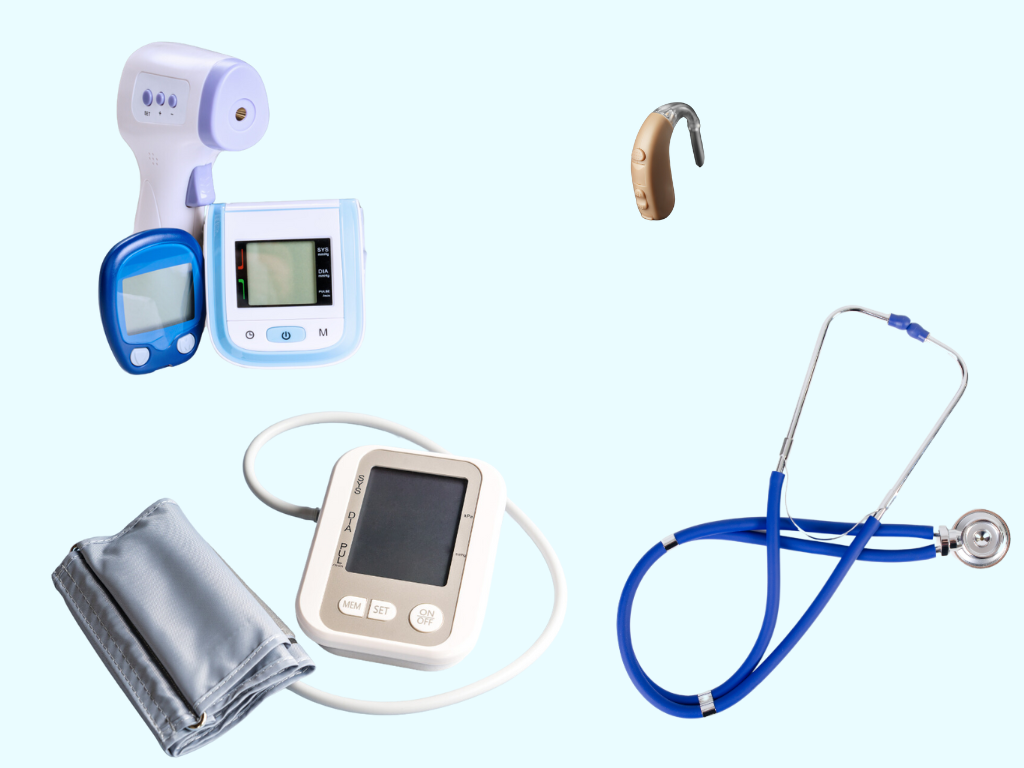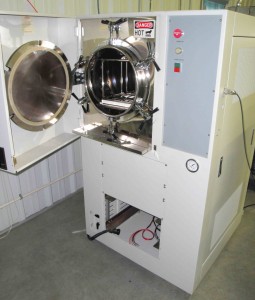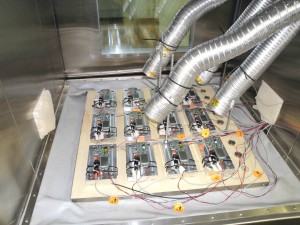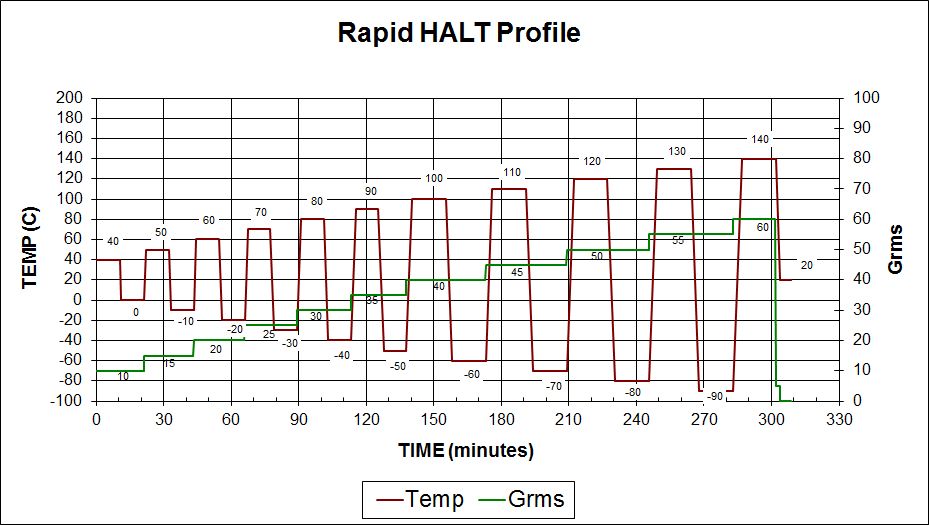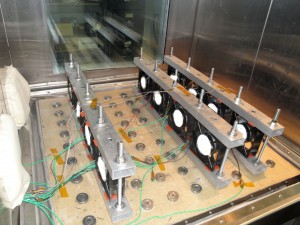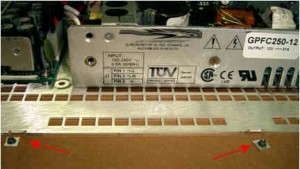The margin for error is virtually nonexistent in the rapidly evolving aerospace sector. Aerospace products, from commercial satellites to advanced aircraft systems, must meet the highest standards of reliability and durability. This is where Highly Accelerated Life Testing (HALT) comes into play, offering a transformative approach to testing and ensuring the robustness of aerospace components before they even leave the ground.
HALT is a rigorous methodology designed to push aerospace products beyond their operational limits, identifying potential weaknesses and failure modes that traditional testing methods might miss. By subjecting aerospace products to extreme stress conditions—far beyond what they would encounter in their normal life span—HALT provides invaluable insights into the inherent durability and reliability of aerospace components.
The beauty of HALT lies in its ability to reveal the unknown. It accelerates the aging process, simulating years of wear and tear in a fraction of the time, thereby uncovering latent defects and vulnerabilities. This preemptive identification allows for critical design modifications and enhancements, significantly reducing the risk of costly failures and recalls post-launch.
For aerospace manufacturers, the implications of HALT are profound. It signifies a commitment to excellence and represents a strategic investment in the product’s lifecycle. By integrating HALT into the development process, aerospace companies can confidently navigate the complex landscape of product reliability, ensuring that their products are not just fit for purpose but are built to last.
Aerospace Testing Laboratory: Advancing Product Reliability with HALT
In the quest for unparalleled aerospace product reliability, our aerospace testing laboratory offers organizations the use of Highly Accelerated Life Testing (HALT) methodologies. HALT represents a commitment to excellence and a testament to our dedication to advancing aerospace technology.
The HALT process within our aerospace testing laboratory involves a series of accelerated stress tests, including rapid temperature cycling, 6 degrees of freedom random vibration tests at varying frequencies, and combined environment tests. These tests are designed to expose products to conditions far more severe than they would ever encounter in service. By doing so, Delserro Engineering Solutions can identify potential failure points and address them long before they become real-world issues.
Key Advantages of HALT in Our Aerospace Testing Laboratory:
- Early Detection of Design Flaws: By applying stressors that exceed the normal operational limits, HALT helps uncover hidden weaknesses in product designs.
- Cost-Efficiency: Identifying and rectifying potential failures before products hit the market significantly reduces the risk of costly recalls and brand damage.
- Reduced Time to Market: Accelerated testing means faster validation of product robustness, enabling quicker transitions from design to production.
- Customized Testing Strategies: Our aerospace testing laboratory tailors HALT protocols to match the specific requirements and challenges of each aerospace product.
Through the strategic application of HALT, our aerospace testing laboratory supports the industry’s continuous drive toward innovation and reliability. We help our clients achieve the highest standards of performance and dependability in their aerospace endeavors.
Embrace the future of aerospace product testing with us. Discover how our HALT methodologies can elevate your products’ reliability to new heights.
The Impact of HALT on Aerospace Testing and Product Integrity
Highly Accelerated Life Testing (HALT) has significantly influenced aerospace testing practices, leading to more resilient and reliable aerospace products. HALT extends beyond traditional testing methods by focusing on identifying potential failure modes early in the product development cycle.
The practical benefits of integrating HALT into aerospace testing include:
- Early Detection and Rectification of Flaws: By pushing components beyond their operational limits, HALT helps uncover hidden weaknesses in the design and materials, allowing for early modifications.
- Comprehensive Stress Testing: HALT subjects aerospace products to a variety of stressors, including extreme temperatures and vibrations, to ensure they can withstand a broad range of operational environments.
- Support for Innovation: The rigorous demands of HALT encourage the exploration of new materials, designs, and manufacturing techniques, driving innovation in aerospace technology.
- Risk Mitigation: Identifying potential issues before products reach the market minimizes the risk of costly recalls and enhances the overall safety of aerospace missions.
- Streamlined Product Development: HALT can reduce the time required for product testing and validation.
- Stakeholder Confidence: Demonstrating a commitment to thorough testing and product reliability helps build trust among manufacturers, regulatory agencies, and users.
HALT’s role in aerospace testing is to provide a practical, systematic approach to improving product reliability and integrity. It’s about making informed decisions based on comprehensive data. Through the application of HALT, the aerospace industry can achieve a balance between innovation and reliability.
Improve Your Aerospace Products with HALT
Adopting Highly Accelerated Life Testing (HALT) for your aerospace products is a strategic move toward securing a competitive edge in the aerospace industry. By incorporating HALT into your product development process, you’re committing to the highest standards of safety, durability, and performance.
Our aerospace testing laboratory is equipped with state-of-the-art HALT technology and a team of experienced engineers dedicated to helping you achieve excellence in product development. Our aerospace testing laboratory’s ISO/IEC 17025 and ISTA accreditation are a testament to our capability to execute tests that are both precise and reliable. We understand the unique challenges of the aerospace sector and are committed to providing tailored testing solutions that meet your specific needs.
In the dynamic field of aerospace, staying ahead means continually pushing the boundaries of what’s possible. Partner with Delserro Engineering Solutions to harness the power of HALT and take your aerospace products to new heights.
Contact us today to learn more about how we can support your journey toward unparalleled reliability and success in the aerospace industry.

